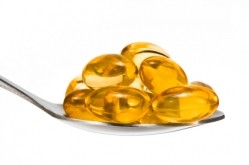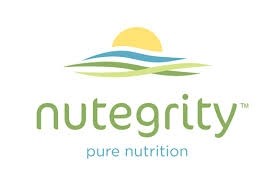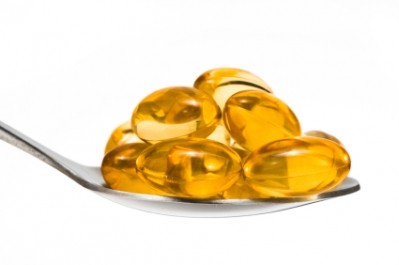Symposium to delve into science behind DPA, an under-the-radar omega-3

The meeting, sponsored by Nutegrity, the human nutrition arm of Houston, TX-based Omega Protein Corp., will be held on July 2 near Stockholm in conjunction with the International Society for the Study of Fatty Acids and Lipids (ISSFAL) 2014 conference. ISSFAL brings together leading scientists in the area of lipid and fatty acid research, particularly those whose work is linked to human health.
DPA’s omega-3 bretheren, EPA and DHA, are among the most intestively-researched nutraceutical ingredients, and strong evidence exists for their benefits in cardiovascular health, in regulating inflammatory processes and in other indications, such as cognitive health and mood support. The evidence is seen as strong enough to establish a recommended intake of these essential fatty acids, and their amounts are called out on labels.
Hidden player
DPA, on the other hand, is relegated to the “other fatty acids” portion of food and supplement labels, and as such flies under the radar. But while the evidence for any health benefits that can be attributed to DPA specifically are at present paltry, more data is coming to the fore on DPA’s role in the mechanism of action of the more well-researched omega-3s. And amassing that data can give a clearer picture of what all the omega-3s are doing, according the chair of the conference, Dr Edward A Dennis, PhD, of the University of California San Diego.
“If you look at fish oil, they all talk about EPA and DHA. They don’t talk about DPA but it is always present. People are aware that they have a lot of DPA in their oil and they don’t talk about it but maybe they should,” Dennis told NutraIngredients-USA.
“Nobody is selling a pure omega-3. They are all a mixture of some sort. One needs to understand what each fatty acid is doing,” he said. “The omega-3 fatty acids are widely believed to be beneficial but there is very little mechanistic evidence on why they work. As a scientist, I’m interested in why that happens.”
Macrophage cell line
Dennis and his team at UCSD have been studying inflammatory processes for a long time using a cell line of macrophages, a key component of the immune system. Thus the research effort has good long-term baseline data on the cell line and how it responds to challenges, so it can make a good comparative analysis of what happens with EPA and DHA supplementation.
The team has amassed the latest rapid analytical technology to measure the production of prostaglandins, leucotrines and other metabolites and inflammatory mediators, some of which have very short half lives. Dennis said the technology can measure hundreds of molecules in a very short run, and in the course of his research he found some surprising things.
Fatty acid elongation
“Our study is the most mechanistic study to date as to what hapens when you supplement a cell with omega-3s. We have developed lipodomics to characterize hundreds of different eicosanoids. We have found that the pattern of eicosanoids is altered when the cells are supplemented with either EPA or DHA. When we give our macrophages with a small supplement of EPA, we find that half of the EPA is elongated to DPA,” Dennis said.
Dennis said the same pattern was observed with other fatty acids. The macrophages would elongate the molecules, converting 20-carbon molecules to 22, 22 carbons to 24, and would alter the double bonds within the molecules, too. The research found that DPA was responsible for cyclooxygenase inhibition after EPA supplementation, offering fresh insights into how EPA exerts anti-inflammatory effects indirectly through elongation to 22-carbon DPA.
More work needs to be done on what the effects of direct DPA supplementation might be, and how different ratios of EPA and DPA in a supplement might affect its anti-inflammatory effects. But Dennis said the work his team has done with its lipodomic anaylsis has laid a promising base.
“DPA helped us understand what happening scientifically and mechanistically in this anti-inflammatory process,” he said.
Spurring additional research
The workshop will bring together the leading lights on DPA research. But it’s a small team compared to the gangs of researchers working on EPA and DHA, said Dr. Alex Byelashov, director of new product development at Omega Protein, the largest processor of fish oil based in the US. Nevertheless, the effort to promote research on DPA has to start somewhere, he said.
“That’s going to be the first symposium of this kind,” Byelashov said. “Keep in mind that DHA and EPA are among the most studied ingredients out there. What we are doing here is to bring the best scientists around the world together in one room. We hope it will generate more interest in the research community.”
Along with Dennis, the symposium will feature the follow reasearchers:
• Doug Bibus, Lipid Technologies
• Andrew Sinclair, Deakin University (Chair)
• Bruce Holub, University of Guelph
• Kaisa Linderborg, University of Turku
• Michael Ballou, Texas Tech
• Samuel Fortin, SCF Pharma
• Marina Lynch, Trinity College
For more infomation on attending the ISSFAL Conference and this satellite symposium on DPA, click here.
















